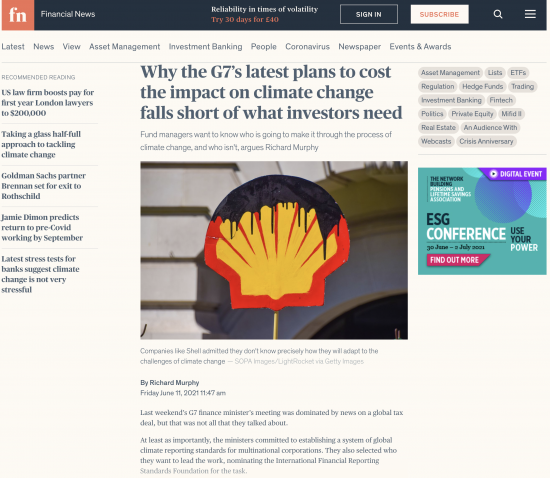I have a viewpoint article in Dow Jones Financial News today:

The article can be accessed by registering and then using your one free article allocation per month to read it.
My core argument is that the G7 backed planned International Financial Reporting Standard programme for climate reporting by multinational corporations will be seriously deficient when it comes to supplying data for investment decision making.
As I argue, the IFRS is proposing entirely separate accounting for climate change with standards produced by an International Sustainability Standards Board (ISSB) that will be distinct from its International Accounting Standards Board that issues accounting standards.
As I say:
I suggest that this is a mistake. The assumption that underpins this logic is that of the microeconomic theory of the firm. This suggests that there are ‘free gifts of nature' that a microeconomic entity is entitled to use without making compensation payment for the cost that is imposed upon society as a result. In accounting terms the assumption appears to be the costs of climate change does not need to be reflected in the financial statements that report profit or loss for a period, or upon a corporation's balance sheet.
What I then go on to explore is my version of climate change accounting, which I call sustainable cost accounting. There are more details here. This puts those costs in the accounts - which is where they belong. And only if they are included will we have efficient capital markets for the next thirty years.
Thanks for reading this post.
You can share this post on social media of your choice by clicking these icons:
There are links to this blog's glossary in the above post that explain technical terms used in it. Follow them for more explanations.
You can subscribe to this blog's daily email here.
And if you would like to support this blog you can, here:


 Buy me a coffee!
Buy me a coffee!
